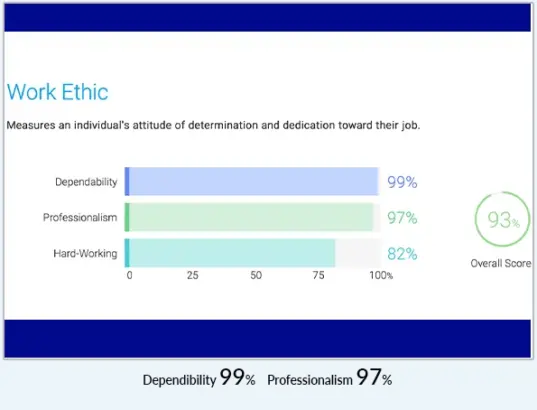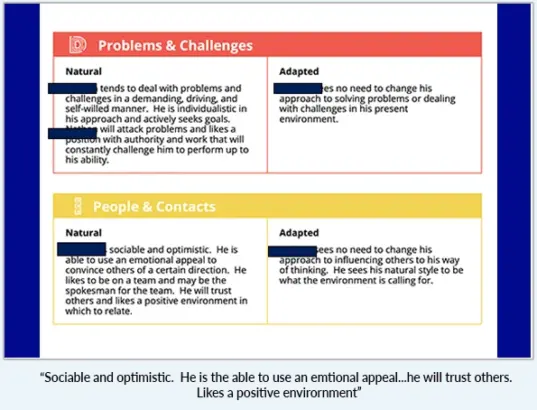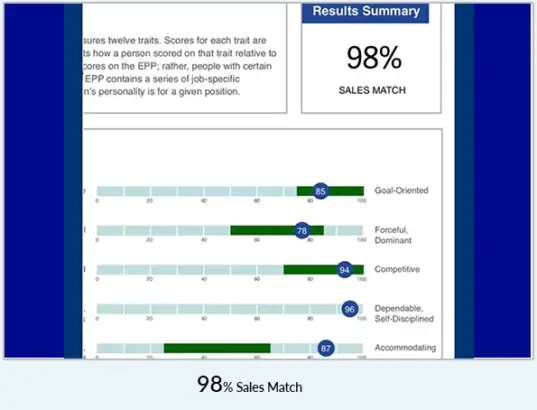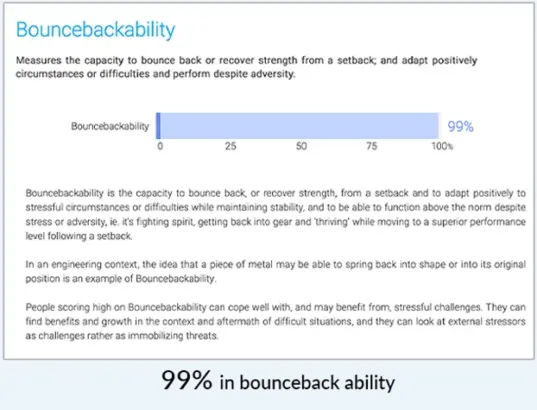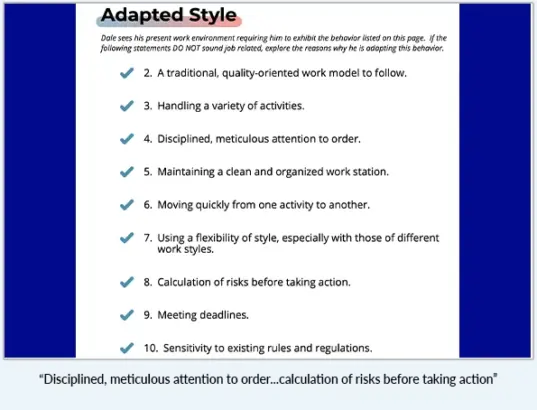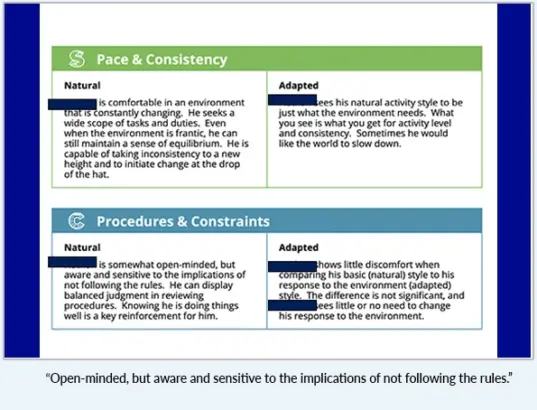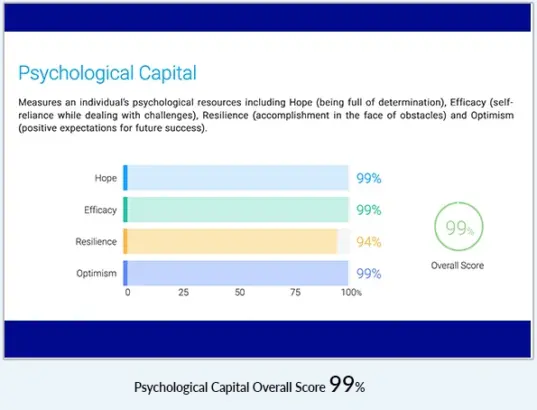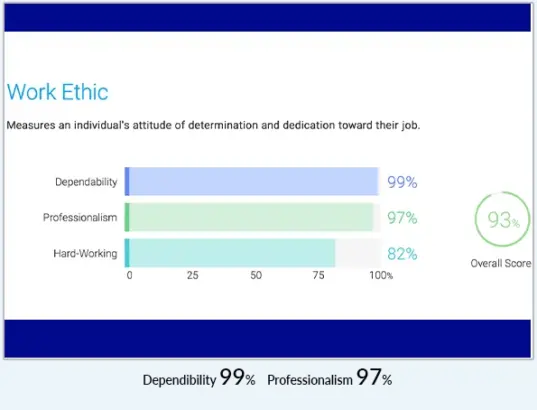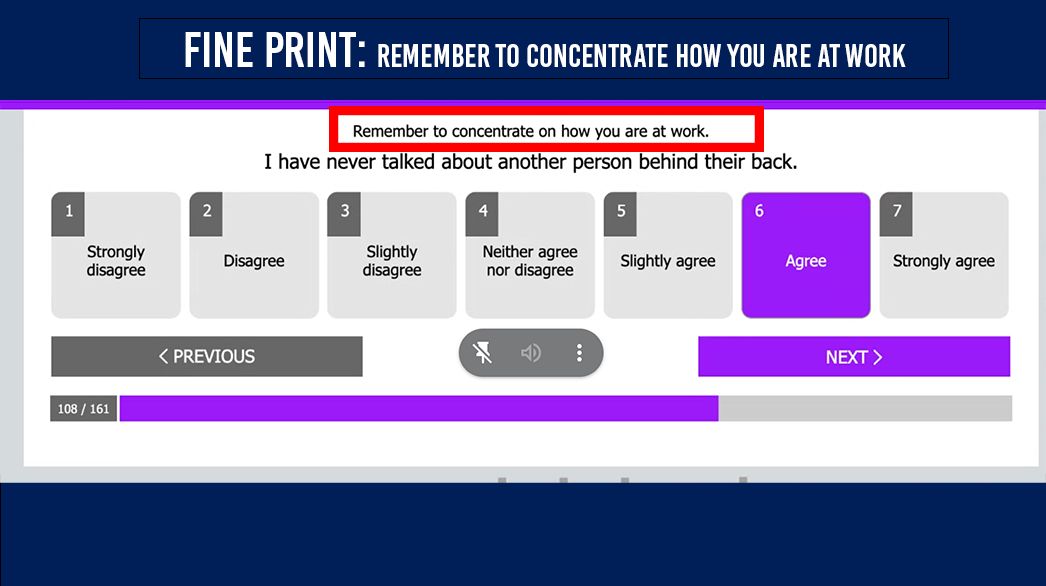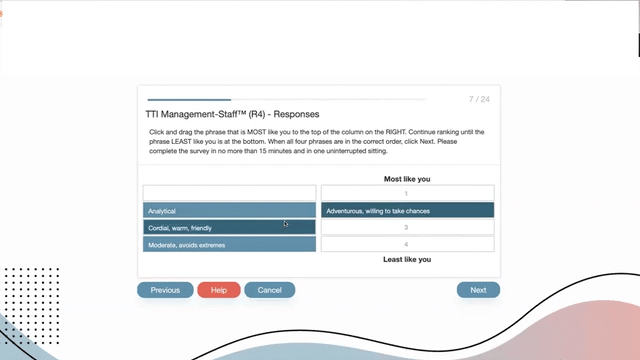How to pass any preemployment test
"If you don't learn how to pass preemployment tests your career will suffer. If you learn, you'll open up career doors that were never possible before."
How to pass any job aptitude or preemployment test
Any job aptitude, preemployment, or personality assessment test will tell you there are no passing or failing grades. It’s not correct to say there are no right or wrong answers.
Also, to gain an employer’s interest and respect, you must implement strategies, preparation, consistencies and perspectives when trying to pass any preemployment or job aptitude test. It’s no different than the SAT’s, LSAT’s, CPA or the Bar Exam or any other big exam.
What you need to know
- Regardless of test formats the strategy we’ll teach you applies to each
- In 2022 to present only about 5% of candidates are brought in for a first or next round interview
- Getting a great preemployment assessment test result is extremely hard
- The assessment tests do hold merit, but are not 100% accurate
- Assessment test providers are paid by the number of tests taken
- If you don’t know the format and strategies, you are very unlikely to do well
- There are right and wrong answers
- Preemployment and personality assessment tests are very tricky

The testing results we get
Even the smartest people have a lot of trouble passing preemployment and personality aptitude tests. Until you know what the tests are looking for (their tendencies and redundancies) and formulate strategies, you stand a very little chance.
Luckily, Intelligent Job Seeker has helped teach the various job assessment test strategies for years. This is done via one on one screen sharing sessions or for a limited time it will be included with membership to Interview Essentials Premium in which you can watch a video series of our team taking a test and explaining the answers.
Click to Enlarge the Image
The Benefits of Using Intelligent Job Seeker to Learning Preemployment Tests
Whether you choose to purchase a membership to Interview Essentials or take a private lesson, here is what happens as a result.
- Companies fast track the interview process
- Strongly consider you if you don’t have industry experience
- You will get offered a much higher compensation package
- You get the upper hand when negotiating benefits like part-time at home office, vacation days, bonus and much more
How Job Assessment Scores Work
Job aptitude test scores may not say “pass” or “fail” but it’s the way assessment tests are structured. The aptitude tests come in many different formats. Some give you a few situations and ask you to prioritize them in order, others ask you to rate a statement in terms of accuracy.
Luckily, all the tests look for the same thing. If you know the strategies to pass one, you can pass all preemployment assessments.
Other preemployment tests ask you the extent of which you agree or disagree to a statement about yourself, work ethic or similar. The good news is that they are all very similar in what they judge candidates by.
There are right and wrong answers
- There is a pass or fail; it’s just done in a little bit format
Just because the tests say there isn’t, doesn’t make it true. The tests say that in order for you to answer honestly thinking there are no ramifications.
After you take them, the tests give the employer a print-out and in-depth synopsis. Sometimes, they will show you the reports after you take the test. Other times, they will not.
Regardless, each employer is given a simplified scoring card to quickly interpret your results. So, there are right and wrong answers.
Consistency is key
Every test you take will frame the same question in multiple, subtle ways with slight wording changes.
Often, test-takers will get frustrated by the redundancy in questions and begin to answer in different ways.
Even worse, they drift off thinking, “this is annoying” and breeze through the rest.
This will create a false-positive which likely will result in an inconclusive score which is about the lowest score you can get.
If you’ve ever seen a true crime show and watch a detective interrogate, their questions would look something like the below:
We all know what these situations look like:
“So you were at the house at 9:15 to you say 10:00. What were you doing beforehand?
Who was the first person you saw after leaving? Can they attest to the fact that is was 10:00?
What did you do after you left? Now, walk me back through where you were and what you were doing before you arrived?
Ultimately, the consistency in the person’s story will either confirm or deny their suspect’s innocence.
Real example of a preemployment test judging consistency
An Interrogation strategy is a situation in which you’re asked nearly the same question multiple times.
This is the premise of personality tests in terms of deciphering who remains consistent in displaying the same desired traits.
An appropriate example of this is a job applicant who faced this question during a personality test:
- Q1: Would you rather give money to a homeless man or read a book in the library?
- Q2: Would you rather spending time socializing or study and learn a new subject?
Regardless of whether it is for a sales leadership, marketing, accounting or engineering job, the right answers would be:
- A1: Read a new book in the library
- A2: Study and learn a new subject.
Real example of aptitude testing consistency
Often, candidates take the test trying to make the exam seem as if they are a kind person who cares about others and prioritizes relationships above all else.
This is the wrong strategy and won’t allow you to proceed in the interviewing process. Sound odd? On the surface they do.
That is until you consider the employer’s perspective. All companies want someone who can produce maximum capacity. The wrong answer is conducive to making friends, being altruistic or being reliant.
Traits all preemployment tests want
To understand why this is, we have to analyze the traits, habits and work ethic that the personality tests are looking for.
- Goal Oriented
- Results Oriented
- Not Afraid to Speak Their Mind
- Organized
- Consistent
- Decisive
- Passionate
- Healthy gets enough sleep
- Work focused not life work balance / but not to the extreme
Traits all preemployment tests do not want
What Preemployment Do Not Want
- Goes with the flow
- Prefer to work in a team
- Inability to adapt to changing situations
- Needs constant direction
- Is easily manipulated or influenced
- Willingness to set aside goals for others


